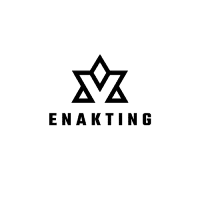How to Create a Cost-Effective Digital Marketing Strategy for UK Startups?

In the constantly evolving world of business, digital marketing plays a crucial role in shaping the future of startups. With the right digital marketing strategy in place, you can help your startup grow, reach its target audience, and make a significant impact in the market. However, not every startup has a vast marketing budget, leading many to question how they can effectively leverage digital marketing without breaking the bank.
In this comprehensive guide, we will walk you through the process of creating a cost-effective digital marketing strategy for UK startups. Whether you are just establishing your brand or looking to expand your reach, we will provide you with practical tips and insights to maximise your marketing efforts while keeping your budget in check.
This might interest you : How to Optimize Telehealth Services for UK Health Care Providers?
1. Understanding Your Audience
Before spending a penny on any marketing efforts, it’s essential to have a clear understanding of who your audience is. When you know who you are talking to, it allows you to make smarter decisions about what type of content to create, where to share it, and how to measure its success.
Begin by conducting thorough market research to identify your target demographics. Pay attention to their online behaviours, their likes and dislikes, and the types of content they are most likely to engage with. Utilise tools like Google Analytics and social media insights to gain comprehensive data about your audience, helping you tailor your digital marketing strategy accordingly.
Have you seen this : What Are the Key Success Factors for Sustainable Urban Development Projects?
2. Developing a Content Strategy
Content is, without a doubt, a vital part of digital marketing. It has the power to engage your customers, strengthen your brand identity, and improve your website’s SEO performance. When strategising your content, consider the needs and interests of your audience.
Content can range from informative blog posts and videos to engaging social media posts and email newsletters. Use your understanding of your audience to determine the types of content that will be most effective. Remember, quality always trumps quantity. It’s better to create fewer pieces of high-quality, engaging content than to bombard your audience with a surplus of subpar material.
3. Leverage Social Media
Social media serves as a cost-effective platform to connect with your customers and promote your brand. With billions of users active on platforms like Facebook, Instagram, Twitter, and LinkedIn, a well-planned social media strategy can significantly enhance your online presence.
Start by setting up profiles on platforms where your audience spends most of their time. Post regularly, engage with your followers, and promote your content. Social media advertising also offers cost-effective options for startups, allowing you to reach a wider audience with a modest budget.
4. SEO is Your Best Friend
SEO, or Search Engine Optimisation, is a critical component of a cost-effective digital marketing strategy. When done correctly, it can significantly improve your website’s visibility on search engines like Google, leading to increased traffic and potentially higher sales.
Optimising your website involves using targeted keywords, improving site speed, and creating quality backlinks. It may also include regular content updates and ensuring your website is mobile-friendly. While SEO can be complex, numerous free resources and tools are available online to help guide you through the process.
5. Email Marketing: Don’t Underestimate Its Power
Email marketing remains an effective and affordable way of reaching out to your customers. It enables direct communication with your audience, allowing you to promote your brand, share updates, and build strong relationships.
Start by building an email list of customers and potential customers. Offering a freebie or a discount in exchange for email addresses can be an effective strategy. Regularly send out well-crafted, personalised emails that provide value to your audience. Remember, the goal is not to spam their inbox but to engage them with relevant and compelling content.
Creating a cost-effective digital marketing strategy may seem daunting, but with careful planning and strategic implementation, your startup can thrive in the digital space. So, take the time to understand your audience, develop a solid content strategy, leverage social media, make the most of SEO, and utilise the power of email marketing. Before you know it, you’ll be watching your startup grow and succeed without having to stretch your budget.
6. Utilising Influencer Marketing
In this digital age, influencer marketing has become a powerful tool for businesses wanting to reach a wider audience without a hefty price tag. Influencers, with their large and engaged followers, can boost your brand’s image, improve your online presence, and directly influence your target audience’s buying decision.
First, identify influencers who are relevant to your industry and have an audience that aligns with your target market. Then, build a relationship with them and propose a collaboration that might involve a product service review or a sponsored post. Remember, it’s not always about the number of followers they have. What matters most is the influencer’s engagement rate and the authenticity of their content.
You can track the success of your influencer marketing campaign by monitoring key metrics such as the number of likes, shares, comments, and clicks on your sponsored posts. This data can help you understand the effectiveness of your campaign and inform your future marketing strategies.
7. Implementing PPC Advertising
Pay-Per-Click (PPC) advertising is a type of online marketing where advertisers pay each time a user clicks on one of their online ads. These ads can appear in search engines like Google or on social media platforms. Though it involves a certain investment, PPC can be an extremely effective marketing tool if used correctly.
To start with, define clear objectives for your PPC campaign. Whether it’s increasing brand awareness or driving sales, having a clear goal in mind will guide your strategy. Then, research the most effective keywords related to your product or service and use them in your ads to attract potential customers.
Monitor the performance of your ads regularly and adjust your strategy as needed. Remember, a successful PPC campaign requires regular tweaking and optimisation. But with the right approach and continuous effort, you can reap substantial benefits even with a modest marketing budget.
Conclusion
The digital space holds immense potential for startups. With a well-planned and thoughtfully executed digital marketing strategy, small businesses can carve a niche for themselves in the market without shelling out a fortune.
To create a cost-effective digital marketing strategy, startups need to understand their audience, create high-quality content, utilise social media, optimise their website for search engines, leverage influencer marketing and PPC advertising, and employ strategically crafted email marketing campaigns.
While it does require consistent effort and attention to detail, the results can be rewarding. With careful planning, strategic implementation, and regular monitoring of your campaigns, you can see significant growth in your startup’s online presence, customer base, and ultimately, sales.
In the dynamic world of digital marketing, change is the only constant. Hence, it’s vital to stay updated with the latest trends and adapt your marketing strategies accordingly. By doing so, you can ensure your startup stays relevant, competitive, and on the path to success.
Remember, digital marketing is not an overnight success. It’s a continuous process. So, hold your patience, keep learning, and keep evolving. Your dedication and hard work will surely pay off in the long run.
